From Murdered White Farmers to ‘Racially Disfavored Landowners’:
Why Trump and Musk Are Targeting South Africa
Trump has signed an executive order cutting aid to South Africa — Musk’s birthplace — after alleging the country’s majority Black government is wrongfully seizing land from white farmers.
In October 2016, heavily pregnant Mariandra Heunis was putting her youngest to bed in their remote South African farmhouse when she heard the chilling sound of a gun cocking. Turning around, she saw two intruders standing before her.
“They started shouting aggressively; my husband woke up. They demanded money, to which we, in turn, responded that we don’t have money and do not have money in the house, but they could take whatever they want if they just leave us unharmed,” Ms. Heunis, who, like the rest of her family, is white, told me when I interviewed her in 2018. “But he just started shooting. I was terrified. I couldn’t stop the bullets.”
A bullet narrowly missed her six-year-old daughter, who screamed in terror, while her husband, Johann, 43, was shot five times. “They stormed at me and grabbed me up from the couch, demanding that I go with them downstairs. My little girl then put her hand up and offered them her piggy bank,” Ms. Heunis remembered.
“At that moment, my husband got up for the last time. He pleaded. I pleaded. They shot him execution style. They threatened me with a gun to my head and asked where the children were. I told them they had done enough.”
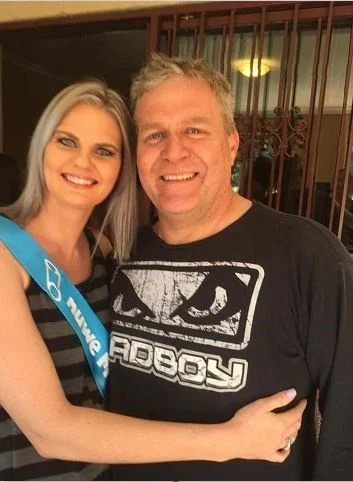
The attackers, who were Black, took nothing but their victims’ mobile phones, leaving Ms. Heunis unable to call for help. Five days after burying her husband, the stay-at-home farm wife gave birth to their fourth child. She vowed to fight back against what she claims are racially targeted killings that have claimed thousands of lives.
The New York Sun could not reach Ms. Heunis for further comment. She appears not to have given any interviews in recent times and her YouTube has not been updated for five years.
The Heunis family, however, is among hundreds of farm families who’ve been violently attacked in South Africa in recent years. Many of these victims are from white farming families whose history of working the land goes back many generations to the earliest years of white settlers from Northern Europe, and whose ownership of the farmland has, in some instances, been challenged in recent years by South Africa’s majority Black government.
While there is a shortage of reliable data showing that white farmers are being specifically targeted for violent attacks, or that the attacks are racially motivated, the epidemic of farm attacks has attracted international attention, including from President Trump.
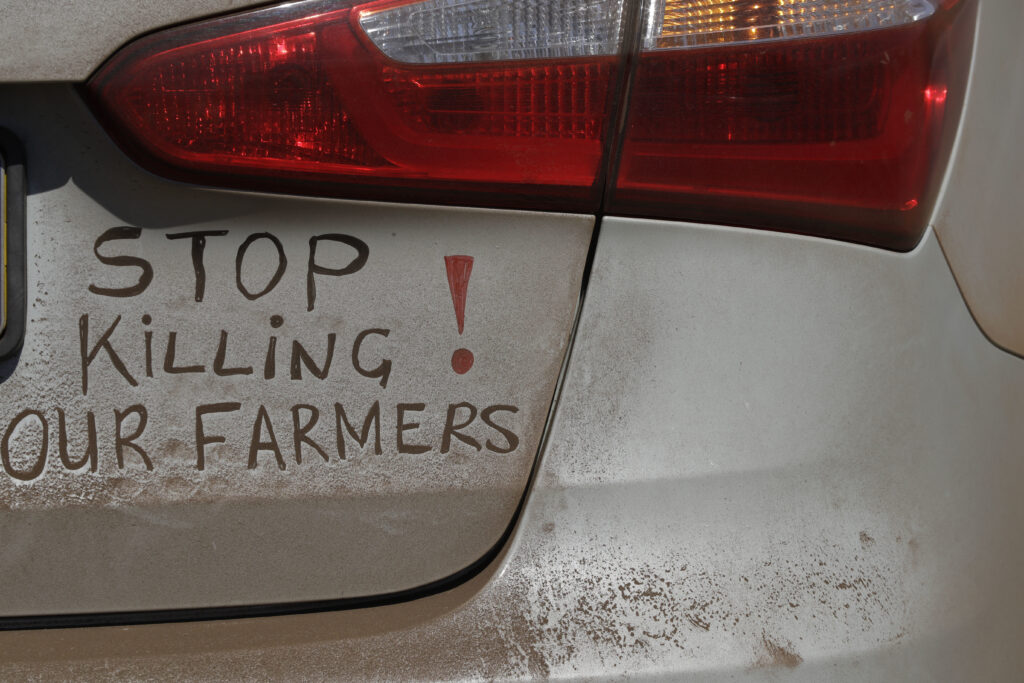
Mr. Trump re-ignited a diplomatic firestorm earlier this month by signing an executive order cutting foreign aid to South Africa, accusing its government of “fueling disproportionate violence against racially disfavored landowners.” The executive order cited concerns over violent attacks and land seizures impacting white farmers — an assertion that has already drawn sharp criticism from lawmakers at Pretoria, the South African capital.
So, what is going on?
Mr. Trump’s move is partially in response to South Africa’s newly enacted Expropriation Act, which allows the government to reclaim certain lands without compensation. The bill aims to address what the Black-dominated government calls historical landownership disparities.
In a social media post, Mr. Trump accused the country’s leadership of committing “Massive Human Rights VIOLATION, at a minimum.” The executive order, issued earlier this month, also includes a provision to help resettle white South Africans in the United States. Mr. Trump described them as “victims of unjust racial discrimination.”
The bill applies to all landowners, regardless of race, if the state determines that the land is needed for public use or redistribution. Yet South Africa’s land reform efforts are intended to address the historical injustices of apartheid.
In South Africa, Mr. Trump’s stance “resonated with conservative groups” there who “believe land redistribution is being used as a political tool rather than a genuine means of redress,” former South African intelligence operator, Tony Schiena, tells the Sun. Mr. Schiena is chief executive of an international security firm, MOSAIC.
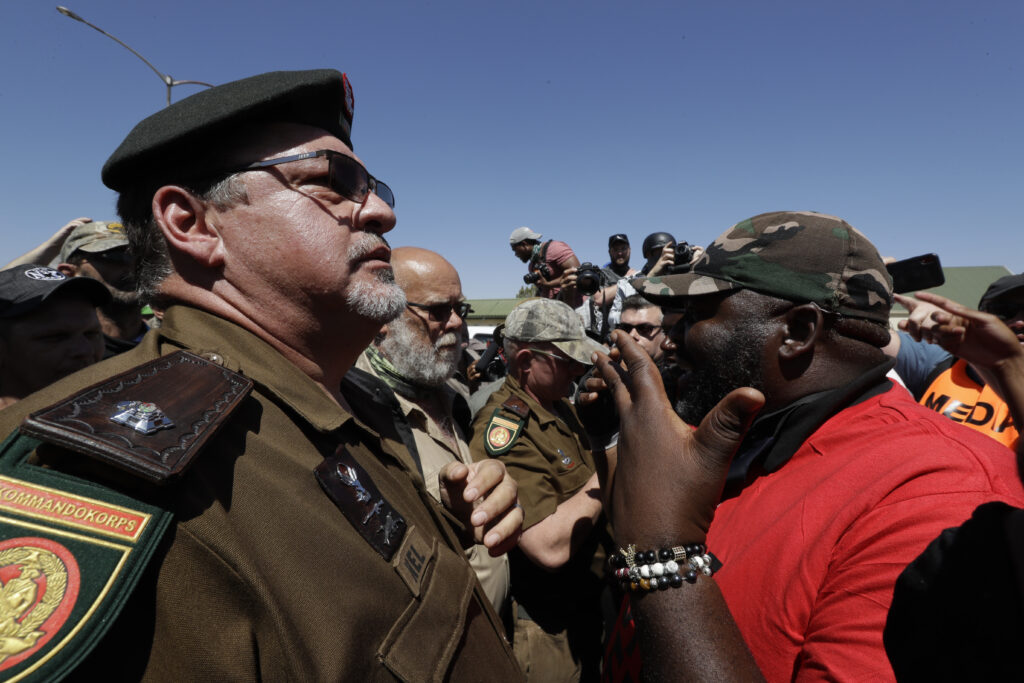
Mr. Trump’s executive order appears to align with the views of his close ally, Elon Musk, the South African-born entrepreneur now overseeing the Department of Government Efficiency that’s upended Washington. Mr. Musk has also previously accused South Africa’s government of having “racist ownership laws” and failing to stop what he called “genocide” against white farmers.
In further justifying his executive order, Mr. Trump pointed to South Africa’s 2023 legal action against Israel at the International Court of Justice, where it accused the Israel government of committing genocide in Gaza — a move that strained relations between Washington and Pretoria.
With Israel’s enemies often accusing Israel of being an “apartheid state”–an Afrikaans word that specifically references South Africa–and the South African government concurring by targeting Israel in the international arena, the situation has become a particular irritant for Israel and its supporters in America.
In response to Mr. Trump’s executive order, the South African government has pushed back, accusing the president of distorting facts for political gain. The government of President Cyril Ramaphosa, a virulent opponent of Israel, has defended the law as a necessary step to address racial injustices from apartheid, vowing that “an expropriating authority may not expropriate property arbitrarily or for a purpose other than a public purpose or in the public interest.”
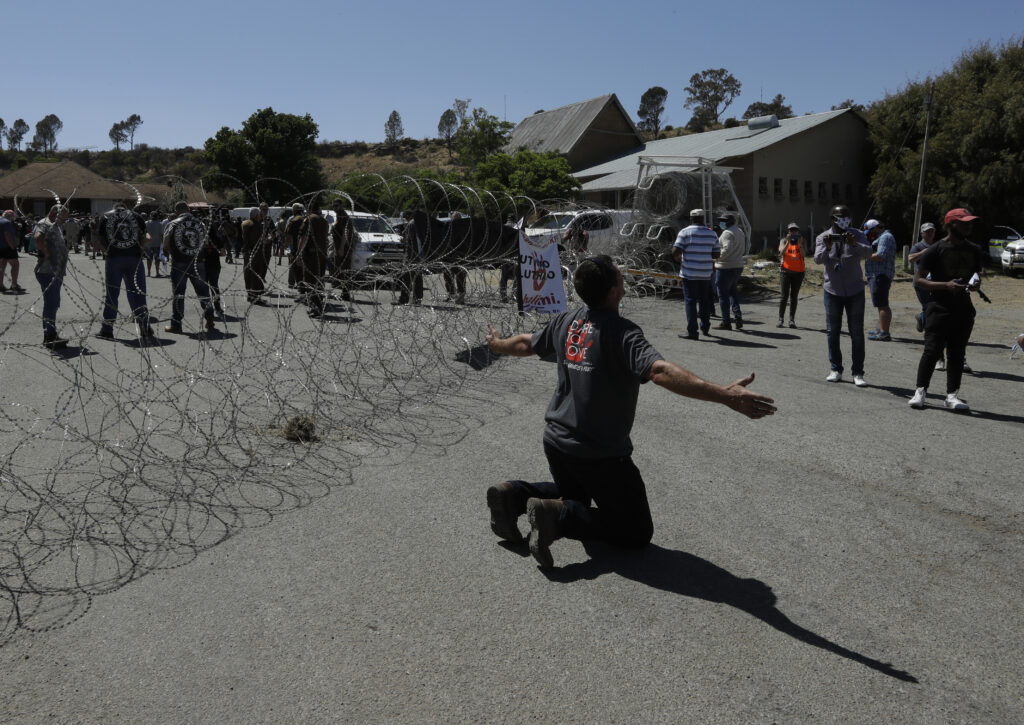
An Africa-focused geopolitical expert, David Otto, says the controversy over white land ownership is nuanced and complex. The issue traces back to the 1913 Native Land Act, passed by South Africa’s white-controlled parliament, which barred the sale of land from whites to Blacks, and vice versa. The effect of the law was to restrict Black land ownership for generations. Today, three decades after apartheid was formally ended, much farmland remains white-owned.
“The apartheid regime further entrenched land dispossession and racial segregation through laws that restricted land ownership and usage by non-white populations, displacing communities and limiting economic opportunities,” Mr. Otto tells the Sun.
“After the end of apartheid, the new government led by Black South Africans initiated land reform policies aimed at redressing historical injustices. However, the pace of land redistribution has been slow, leading to frustrations among many black South Africans who feel that the promises of land reform have not been fulfilled.”
Apartheid in South Africa, from 1948 to 1994, was a system of institutionalized racial segregation enforced by the minority white government. Apartheid dominated many aspects of life, including where people could live, work, and travel.
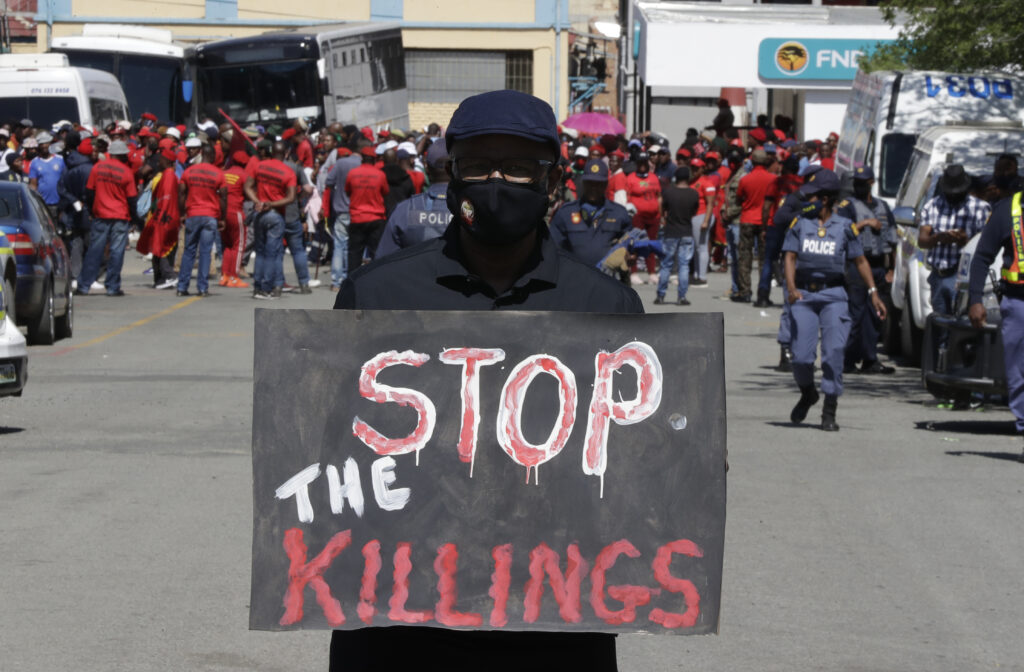
Mr. Otto noted that, from an economic perspective, South Africa still “has one of the highest levels of economic inequality in the world, largely a legacy of its history.”
“Land ownership is a key factor in economic empowerment, and the unequal distribution of land contributes to ongoing poverty among Black South Africans,” he continued. “The challenge lies in balancing the need for land reform with the rights of existing landowners and ensuring sustainable economic growth.”
Others sharply contend that the confiscation of land, irrespective of ownership, is deeply worrisome.
The managing director of strategic advocacy firm Nestpoint Associates, John Thomas, tells the Sun that this executive order is “fundamentally about property rights.”
“Trump believes individuals should have the right to their property, and he applies that belief broadly, not just in Africa but elsewhere,” Mr. Thomas said. “Foreign aid is being used as a tool to promote pro-American values, and in this case, that includes protecting property rights.”
Prior to President Trump’s executive order to halt aid to South Africa this month, the country received a portion of United States foreign assistance allocated to Sub-Saharan Africa. While specific figures for South Africa are not readily available, it’s noted that annual U.S. aid allocations for Sub-Saharan Africa fluctuated between $7.7 billion and $8.3 billion from fiscal years 2012 to 2022. South Africa was named in the top 10 recipients of nonemergency State Department- and USAID-managed aid allocations globally.
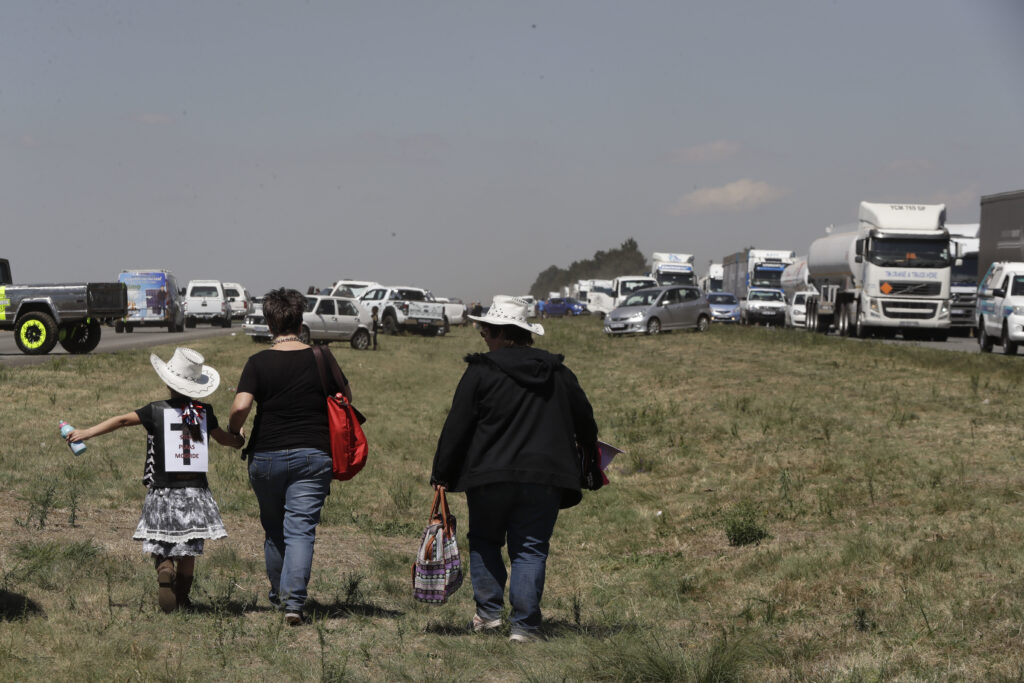
Mr. Thomas highlighted that this legislation is primarily affecting white farmers, so, while there is a racial component, “Trump sees it more as an issue of fairness.”
“Another concern is that while the government claims it hasn’t seized any land yet, it has the power to do so,” he noted, highlighting that the government leans far left and “would proceed with expropriation if there weren’t pushback from figures like Trump.”
An issue reignited
This isn’t the first time Mr. Trump has criticized South Africa’s policies. In 2018, during his first term, he directed his then secretary of state, Mike Pompeo, to investigate the “large-scale killing of farmers” in South Africa. Mr. Trump expressed concern over land seizures and violence against white farmers.
Mr. Trump took action after South Africa’s parliament passed a motion that year to amend the constitution to allow for land expropriation from white farmers without compensation. The amendment failed to pass in December 2021 due to insufficient parliamentary support.
Undeterred, Mr. Ramaphosa signed the Expropriation Bill into law this year, after it successfully passed through the necessary legislative processes, including approval by both houses of Parliament. This new law replaces the outdated Expropriation Act of 1975 and outlines how organs of state may expropriate land in the public interest for various reasons.
A few weeks since the bill became law, there have been no widely reported instances of land being expropriated without compensation. Yet critics contend that the legal cover to potentially take land only adds fuel to the fire of a related and long-running problem: the slaying of mostly white farmers, who reportedly own 70% of commercial farmland, in isolated pockets across the country.
The reality of farm murders
Personal stories and press reports detail gruesome killings of white farmers, in some cases by black suspects. The accounts have included victims hacked with machetes, dragged behind vehicles, shot execution-style, or tortured with farm tools.
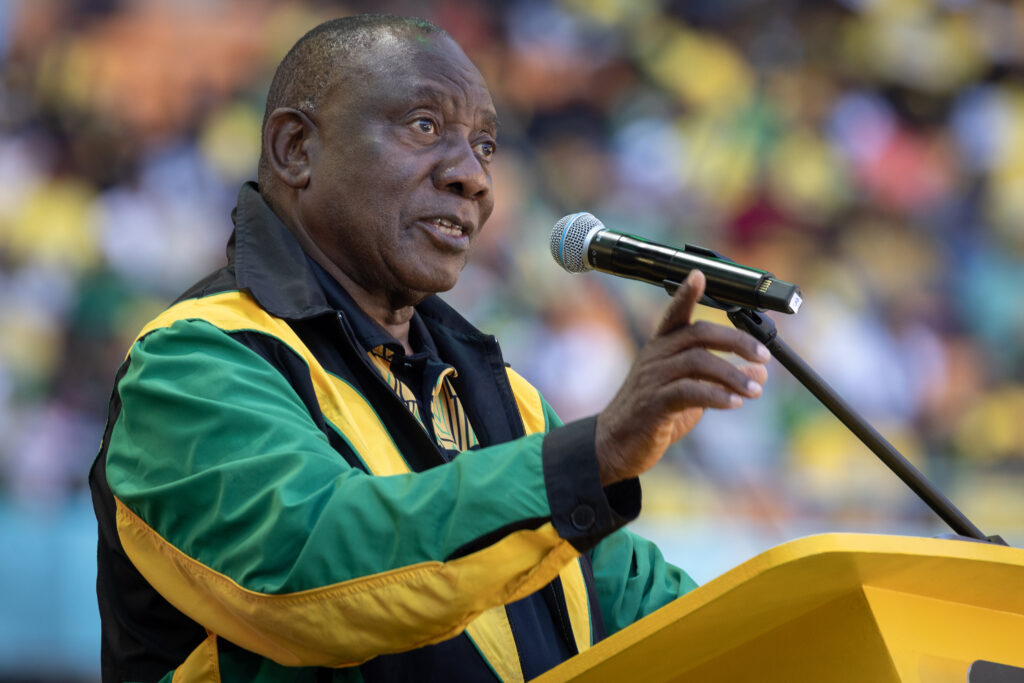
Determining the racial demographics of perpetrators in South African farm attacks, however, is challenging as the South African Police Service does not consistently provide detailed racial breakdowns of offenders involved in these incidents.
Accurate and updated statistics of the breadth of such crimes are hard to come by and widely contested, but it is believed that far more than 4,000 white farmers have been murdered in South Africa since the early 1990s, a shocking figure given that the country has only about 36,000 commercial farmers today.
While authorities attribute these attacks to poverty-driven crime and South Africa’s exceptionally high murder rate overall — 34 homicides per 100,000 people compared to six per 100,000 in the U.S. — the targeted nature and brutality of the killings have fueled claims of racial persecution.
For the likes of Ms. Heunis, the mother of four who survived the attack that killed her husband, and for thousands of others, it is a personal pain that transcends political squabbling.
“Farm attacks in South Africa have been linked to systemic failures in law enforcement. The South African Police Service has been criticized for ineffective investigations, weak sentencing, and granting bail to violent offenders who fail to return for trial. This has led many farming communities to establish their own self-defense networks,” Mr. Schiena explained.
“The government officially supports land redistribution, but critics argue that benefits are disproportionately funneled to the black elite rather than ordinary citizens.”
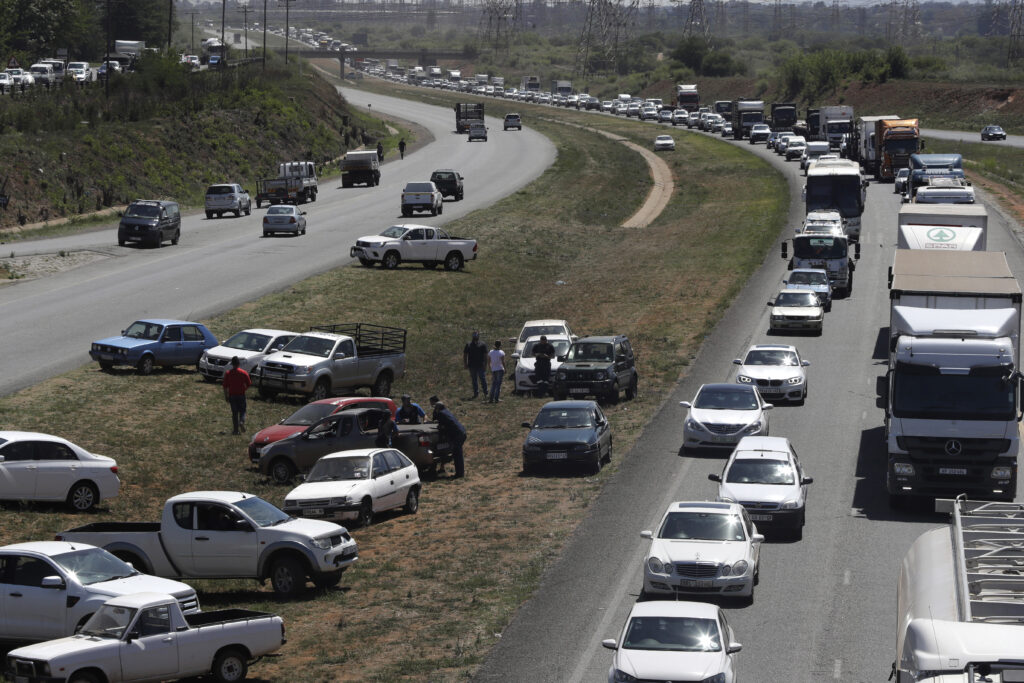
Mr. Otto, however, contended that Pretoria has acknowledged the issue of farm attacks and worked to increase security, forming special units and a task force under the South African Police Service (SAPS) aimed at investigating and responding to incidents more effectively.
“The government engages with farming organizations and industry stakeholders to develop strategies to combat farm violence,” he said. “This collaboration improves communication and response strategies between farmers and law enforcement.”
Still, voices like Ms. Heunis’s and the efforts of activist groups have faced increasing media scrutiny over the years, with critics arguing they are fueling false fears of a “white genocide.” The BBC, for one, “found that there is no reliable data to suggest farmers are at greater risk of being murdered than the average South African.”
The genocide debate
Others — including United States Ambassador to South Africa during the Obama administration, Patrick Gaspard, a Democratic political operative who now oversees the liberal Center for American Progress — have also repeatedly dismissed claims of white genocide as a myth, arguing that farm attacks reflect broader violent crime trends rather than racially motivated extermination.
The likes of Mr. Thomas disagree.
“It’s misleading to downplay the issue or inflate certain statistics to fit a narrative. If you step back and look at Trump’s broader approach, his goal is to promote peace and stability globally,” he insisted. “The reality is that violence is happening, and Trump is using the political tools available to him to protect property rights and support stability.”
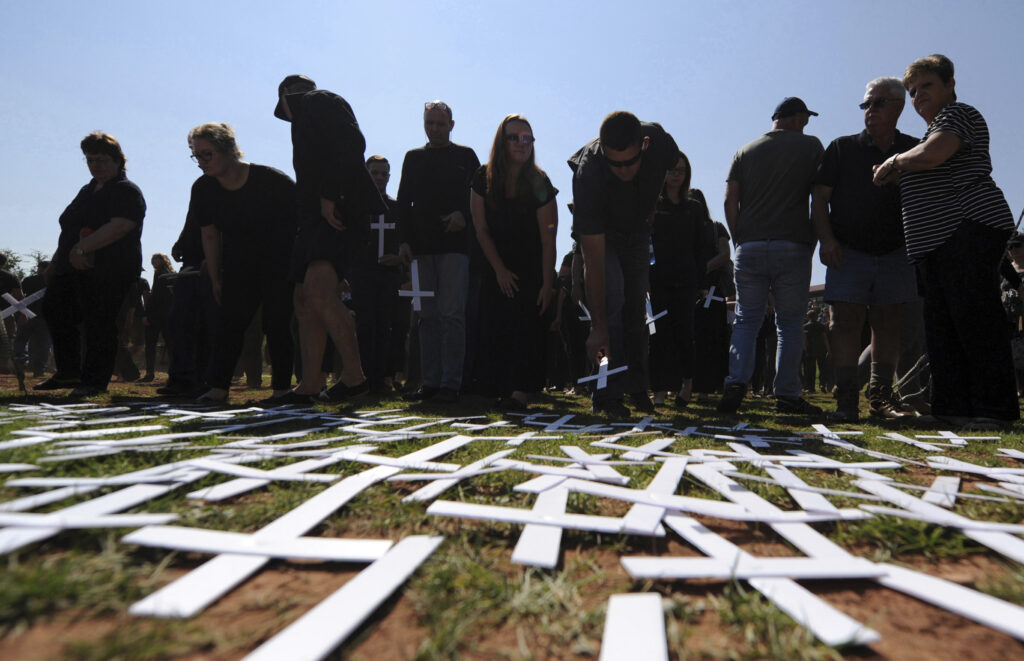
There are others, like Mr. Musk, who have not shied away from framing the issue as a racially motivated crisis. Earlier this month, the X owner directly challenged Mr. Ramaphosa on social media, asking, “Why do you have openly racist ownership laws?”
The future
Even with Mr. Trump’s recent executive order offering resettlement to white South Africans, there is little indication that a significant portion of the Afrikaner community – white South Africans descended from Dutch settlers — is eager to leave. Many remain deeply rooted in South Africa, tied to generations of family —owned farms and businesses.
With internal legal challenges mounting against the Expropriation Act, however, and its continued spotlight from Mr. Trump and Mr. Musk (who is not Afrikaans) straining diplomatic relations, the matter is unlikely to subside anytime soon.
“Our relations with South Africa are a challenge. The government there often resents our role in the world; we reject their criticism,” United States Ambassador to South Africa under George W. Bush, Cameron Hume, tells the Sun. “Both sides ought to seek a realistic basis for relations, and that would require adjustments in expectations.”
https://www.nysun.com/article/from-murdered-white-farmers-to-racially-disfavored-landowners-why-trump-and-musk-are-targeting-south-africa





Post a Comment